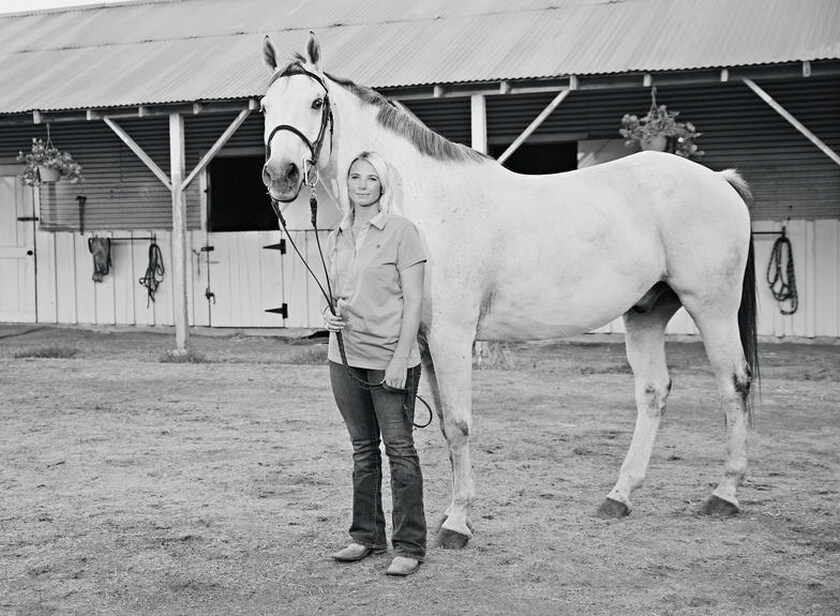Toxic horse feed that left more than 50 show horses either dead or severely sickened in California filed a complaint on Friday against Western Milling for selling horse feed containing monensin – a common food additive for beef and dairy cattle – that is lethal to horses.
The owner of Black Fence Farms, Katie Flanigan, explained,
“The main impact of monensin poisoning on horses is muscle damage, especially to the heart. In some cases of monensin poisoning, horses die very quickly with acute, congestive heart failure, while other horses may die of heart failure in a few days or even weeks later,” lead plaintiff Kathryn Flanigan says in the 20-page complaint.
Owners Ignored & Dismissed
After Katie reached out to Western Milling for some sort of restitution, she got no response. In fact, Katie said the owner of Western Milling “didn’t want to give me the time of day, but I demanded it.” After showing him a video she made of the horses competing with the kids to show the partnerships that are built between horse and rider, including gruesome scenes of horses dying after eating the poisoned horse feed, Katie noticed that as the owner watched the images on the screen, she says he and his attorney were “clearly uncomfortable”.

Incompetent, Careless & Cruel
Now, she along with the other victim’s whose horses were killed or suffered permanent damage are taking legal action, saying the monensin ended up in the feed through cross-contamination from other feed products.
Katie’s attorney, Sean Simpson said,
“At this point, it’s pure carelessness. They don’t want to follow the safety precautions that they’re supposed to follow. Because if they were following them, they wouldn’t have happened. That’s what the regulations are for.”
Other severe reactions include colic, inability to stand, kidney failure and respiratory distress, she says.
“There is no antidote to monensin poisoning. Even if a horse appears to ‘get better,’ the damage is permanent and these horses are likely to develop signs of congestive heart failure if they are ridden, used in any type of performance sport, or stressed in some other way,” the June 10 complaint states.
Katie owns and operates Black Fence Farm, a barn and equestrian training facility in Clovis, Calif., where many of the affected horses were boarded.

The contaminated feed was recalled by Western Milling on September 25, 2015, after it learned that the toxic ingredient accidentally got in horse feed, according to the U.S. Food and Drug Administration, who posted a notice about the recall of the feed on their website.
A History of Failure & Neglect
Katie said this isn’t the first time this has happened at Western Milling and that the company has an ugly history of allowing its horse feed to become contaminated. Documents obtained show Western Milling knew about cross contamination issues, including evidence of past violations, including adulterated feed, dating back to 2009, according to reports received from the FDA.
The FDA’s report attributes the horse feed contamination to three factors at Western Milling’s feed plant: inadequate procedures; equipment not being properly maintained; and manufacturing and bagging horse feed and medicated feeds on the same equipment.
“[The FDA] had sampled animal feed produced by Western Milling in 2009 and 2010 and found impermissibly high levels of monensin in that feed. The FDA reported these findings to Western Milling, but Western Milling failed to investigate or take any corrective actions,” Katie explained.
The California Department of Food and Agriculture tested the contaminated horse feed that plaintiffs’ horses last year and confirmed that it contained unsafe levels of monensin, according to the complaint.
A Slow & Agonizing Wait
The other horse owners at Black Fence Farm say that because of Western Milling’s toxic feed, they have “been forced to endure the cruel and unjust hardship of watching their cherished horses suffer and die painful and violent deaths.”
Katie said that what needs to happen is that “this company needs to make major changes or needs to stop making horse feed.”
Because the horses that remain at the Farm are too sick to ride or to be used in competition, all the owners can do is wait and watch while their horses die a slow and agonizing death while giving them all the love and support they can until they succumb to the toxic effects of monensin poisoning.
A Touching Tribute
A touching tribute to the 13 beautiful horses that died due to the careless feed manufacturing practices at Western Milling is posted on Black Fence Farm’s Memorial Page:
Forever in our hearts, we will never forget you Loreal, Suzy Q, Turtle, Star, Lucky, Indy, Olaf, Petunia, Cody, Bob, Gucci, Henri & Wall-E.

WARNING: The images below, as difficult as they are to look at, are a graphic reminder of why feed companies need to take extreme caution when manufacturing a feed with monensin in it.








